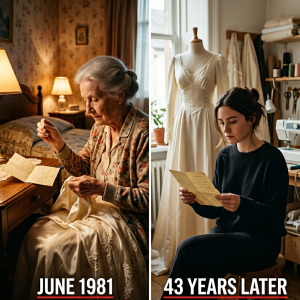Our Friday night was supposed to be special—just Sarah and me, slipping away from life’s frantic pace to reconnect over comfort food and nostalgia. We chose a cozy Italian place, its walls bathed in a gentle glow beneath decorative grapevines. Conversation flowed effortlessly, filled with gentle teasing and laughter from shared memories. It felt like a much-needed respite—until the bill arrived.
The waitress returned abruptly, flinging my card onto the table with an unsettling bang. Loudly enough for nearby tables to hear, she declared, “Your card declined,” adding with a disdainful sneer, “Maybe you shouldn’t take women out if you can’t afford it.” The room instantly stilled, the air thickening with awkward tension. Sarah froze, eyes wide. I touched her hand reassuringly, sensing this humiliating encounter wasn’t finished.
With deliberate calm, I handed over another card. The waitress rolled her eyes dramatically, enjoying her performance in front of a captive audience. When it cleared, she returned with exaggerated cheerfulness: “You’re lucky this one went through.” My gaze fell to the receipt, and I paused before writing deliberately—a tip of precisely $0.83. This wasn’t spite—it was a measured response, a quiet assertion that respect isn’t something to be withheld or conditional.
Outside, in the comforting quiet of the evening air, Sarah gently squeezed my hand as I quickly dialed my bank. Moments later, the representative explained—it had simply been a fraud alert, an innocent error quickly resolved. Yet, as I ended the call, relief wasn’t the emotion that lingered strongest. It was the waitress’s cruelty, her intentional choice of humiliation over empathy.
Cards fail sometimes—it’s a mundane inconvenience easily fixed. What shouldn’t fail is human compassion. That evening, our waitress opted for arrogance instead of kindness, choosing to mock rather than understand. And in the subtle act of leaving mere cents as a tip, I offered my own quiet statement: dignity deserves respect, always.





